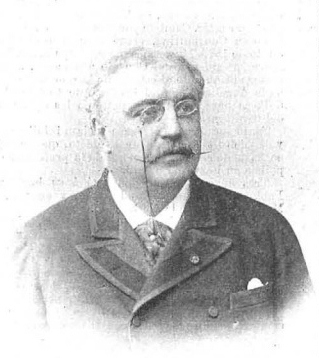Contents
| |||||
| Decades: | |||||
|---|---|---|---|---|---|
| See also: | Other events of 1881 List of years in Spain | ||||
Events in the year 1881 in Spain .
| |||||
| Decades: | |||||
|---|---|---|---|---|---|
| See also: | Other events of 1881 List of years in Spain | ||||
Events in the year 1881 in Spain .

Alfonso XII, also known as El Pacificador, was King of Spain from 29 December 1874 to his death in 1885.

In Spanish politics during the late 19th and early 20th centuries, El Turno Pacífico was an informal system operated by the two major parties for determining in advance the result of a general election. The system ensured that the Conservative Party and the Liberal Party would have alternating periods in power.

Antonio Cánovas del Castillo was a Spanish politician and historian known principally for serving six terms as prime minister and his overarching role as "architect" of the regime that ensued with the 1874 restoration of the Bourbon monarchy. He was assassinated by Italian anarchist Michele Angiolillo.

The Restoration or Bourbon Restoration was the period in Spanish history between the First Spanish Republic and the Second Spanish Republic from 1874 to 1931. It began on 29 December 1874, after a coup d'état by General Arsenio Martínez Campos ended the First Spanish Republic and restored the monarchy under Alfonso XII, and ended on 14 April 1931 with the proclamation of the Second Spanish Republic.

Francisco Silvela y Le Vielleuze was a Spanish politician who became Prime Minister of Spain on 3 May 1899, succeeding Práxedes Mateo Sagasta. He served in this capacity until 22 October 1900. Silvela also served a second term from 6 December 1902 to 20 July 1903, in which he succeeded another one of Práxedes Mateo Sagasta's many separate terms as prime minister.

Segismundo Moret y Prendergast was a Spanish politician and writer. He was the prime minister of Spain on three occasions and the president of the Congress of Deputies on two occasions.

The Pantheon of Illustrious Men is a royal site in Madrid, under the administration of the Patrimonio Nacional. It was designed by Spanish architect Fernando Arbós y Tremanti, and is located in Basilica of Nuestra Señora de Atocha in the Retiro section of Madrid.

José Álvarez de Toledo y Acuña was a senior Spanish politician and diplomat.
The Liberal Party, originally called Liberal Fusionist Party until 1885, was a Spanish political party created in 1880 by Práxedes Mateo Sagasta. With the Conservative Party of Antonio Cánovas del Castillo, it formed a two-party system of alternating governments, the turno, which characterised the Spanish Restoration during the late 19th century and the early 20th century.

Cristino Martos y Balbí was a Spanish politician and lawyer who served as Minister of State from 1869 to 1870, in a cabinet headed by Juan Prim, 1st Marquis of los Castillejos, and held other important offices such as Mayor of Madrid. He was a member of the Radical Democratic Party.
The Constitutional Party was one of the Spanish political parties that contended for power during the reign of Amadeo I and the First Spanish Republic (1873-1874), opposing the Radical Democratic Party.

The 1903 Spanish general election was held on Sunday, 26 April and on Sunday, 10 May 1903, to elect the 11th Cortes of the Kingdom of Spain in the Restoration period. All 403 seats in the Congress of Deputies were up for election, as well as 180 of 360 seats in the Senate.
Events from the year 1898 in Spain.

Práxedes Mariano Mateo Sagasta y Escolar was a Spanish civil engineer and politician who served as Prime Minister on eight occasions between 1870 and 1902—always in charge of the Liberal Party—as part of the turno pacifico, alternating with the Conservative leader Antonio Cánovas. He was known as an excellent orator.
Events from the year 1897 in Spain.
Events in the year 1901 in Spain.
Events in the year 1893 in Spain.
Events in the year 1886 in Spain.
Events in the year 1902 in Spain.